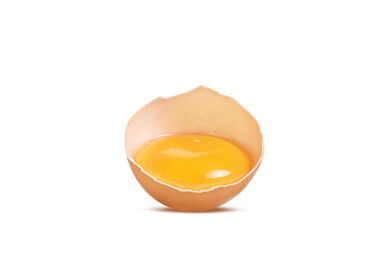New corn mill is the biggest investment for Cargill India

Agri food giant Cargill India is to start operating its corn mill in Karnataka in September this year, processing about 800 tonnes of corn per day that has been locally sourced. In what is being termed as its biggest investment in India, at around US$96.38 million, the new mill aims to help the company cater to the growing demand for modified starch in the processed food segment as well as the pharmaceutical industry. Also in animal feed, the company is investing in more capacity.
Officials said the initial investment for the new corn mill has been estimated at US$ 64.29 million. The entire investment is to be funded through internal accruals. The new mill is spread across 44.5 acres, and is in the heart of corn growing areas at Davanagere in Karnataka. Cargill India Director and Business Head B K Anand said in the first year of commencement, the company would only use 50% of the capacity. The full capacity would be put to use over the next three years.
A grain storage facility is also envisaged around the plant. For the corn supply chain industry, the company would also look at backward integration, and is to rely on local procurement for its corn. The full capacity of the new corn mill would be around 300,000 tonnes. At the mill, corn will be processed to produce glucose and other derivatives which can be used as thickeners, sweeteners, and for other purposes in the food and healthcare industry. While the output from the new mill would be largely used for the local market, around 10% of the output is expected to be exported to Africa and the Middle East.

Three refining plants for edible oil
Siraj A Chaudhry, Chairman of Cargill India, said to the media that the company was also in the midst of investing around US$16.07 million in order to expand capacity of its existing edible oil plants. The company has three refining facilities in Maharashtra, Gujarat and Odisha, with a combined capacity of 4,000 tonnes per day. Cargill is engaged in refining, processing, and marketing imported and indigenous vegetable oils. The US$135 billion American food processing giant’s Indian arm aims to increase its edible oil refining capacity by 1,000 tonnes per day. As of March 2014, Cargill India’s turnover was US$1.44 billion, at around 1% of its global turnover.
India largerest producer of oilseeds
The Indian food processing industry is expected to touch US$ 200 billion by the end of this year, growing at a compounded annual growth rate of 10%. In 2013, the Indian edible oils and fats industry was pegged at 17.5 million tonnes. The country’s annual edible oil demand is 19 million tonnes. India is one of the largest producer of oilseeds in the world, and contributes about 7% of the world oilseeds production. Government data showed that the country accounted for an estimated production of 32.98 million tonnes of nine cultivated oilseeds between November 2013 to October 2014. However, despite being one of the largest oilseeds producer, India imports around 60% of its domestic edible oil consumption requirements. While palm oil is imported from Indonesia and Malaysia, some soy oil is imported from Brazil and Argentina. Sources indicated that rising incomes across the country are expected to drive higher consumption of edible oil. Cargill India operates primarily in the edible oil space, with a production of 600,000 tonnes. As far as corn milling is concerned, production is aimed at 300,000 tonnes.
Acquisitions ahead for Cargill
Chairman Chaudhry said the company is considering fresh acquisitions in the edible oil and wheat flour segments, and that more mergers and acquisitions (M&As) were on the horizon. The company has decided to push ahead in the M&A space despite its earlier five acquisitions in the edible oil space. Gemini Oil was acquired in 2005, Rath Oil in 2010, Sweekar Oil in 2011, Sunflower Vanaspati Oil in 2012, and Leonardo olive oil in 2014. Edible oils and vansapati sold by the company go under the brand names of ‘Sweekar’, ‘Nature Fresh’, ‘Rath’, ‘Gemini’, and ‘Sunflower Vanaspati’. More than half of the revenue of the company comes from the edible oil segment, which helps the company to be among the top three players in the branded vegetable oil segment, behind Adani and Ruchi Soya. In 2014, the company acquired the Leonardo brand of olive oil from Delhi based Dalmia Continental. This complimented its in-house olive oil brand, Nature Fresh. According to the Indian Olive Association, the olive oil market in India has grown rapidly over the last decade from 1,000 tonnes in 2003 to 12,000 tonnes in 2013, primarily on account of an increased health orientation and given Indian families’ higher exposure to multiple cuisines.
New feed mill in Punjab
Close on the heels of the Food Corporation of India, Cargill is termed the second largest player in India in food grain procurement. To partake of India’s burgeoning processed food sector, the company is upping the ante. Apart from investing US$ 96.38 million for the milling plant in Karnataka, which is the largest corn producing state in India, the company has slotted another US$ 16 million for an animal feed mill at Bhatinda, Punjab. The investment includes working capital. Cargill India has seven animal feed manufacturing units in India. The country’s feed additives market is expected to show high growth rates fuelled by the rise in population, increased demand for animal produce, favourable demographics and higher disposable incomes.
This article was featured in AllAboutFeed magazine no. 2, 2015 – to view other articles published in the magazine see AllAboutFeed digital.











